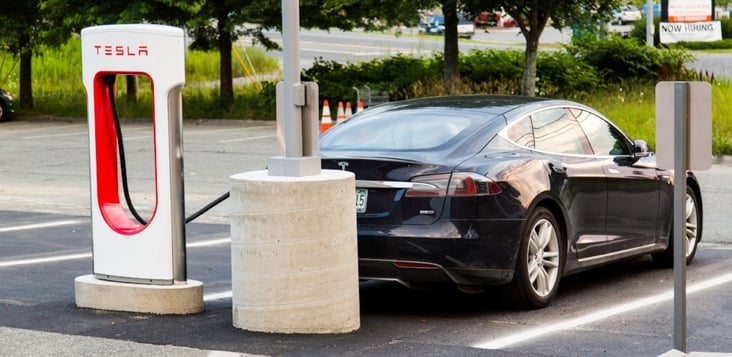
Advanced energy is making our grid more agile, modern, and interconnected. Beyond just corralling electrons, advanced energy technologies, when used together, are more than the sum of their parts: solar + storage, demand response + distributed generation. This week, one story that demonstrates this interconnection dominated the headlines in both the trade press and beyond – the merger between Tesla and SolarCity. And it seems all but a done deal.
On Monday, Tesla Motors indicated it had reached a deal to buy SolarCity for $2.6 billion – a little lower than the price originally proposed in June. SolarCity’s shareholders will receive just over a tenth (0.11) of a share of Tesla stock for every share of SolarCity stock owned, valued at $25.83 apiece. Under the agreement announced Monday, SolarCity has a 45-day period during which it can “go shop,” or get bids from other companies. The deal will likely be finalized in September.
The combination would double the Tesla workforce to 30,000 employees, and bring both the Tesla and SolarCity gigafactories under the same roof. It will also allow Tesla CEO Elon Musk, who owns more than 20% of each company, an opportunity to fulfill his Master Plan Part Deux.
Musk, described the advantages to consumers in a press call in June. “You’d walk into the Tesla store and say: ‘I’d like a great solar solution with a battery and an electric car,’ and in five minutes you’re done,” Musk said. “It’s completely painless, seamless, easy and that’s what the customer wants.”
While one-stop shopping for advanced energy technologies for home and auto makes as much sense as buying homeowner’s insurance and auto insurance from the same company, the deal is not exactly a sure thing yet, and not everyone thinks the prospects are sunny. Mike Ramsey and Cassandra Sweet, writing in The Wall Street Journal, point out that the deal would “tie together two money-losing entities, dependent on borrowing from the market, adding potential risk along with opportunity.”
“It’s a bailout,” said Jesse Pichel, an investment banker at Roth Capital Partners, quoted in the Journal. “SolarCity has had a hard time raising money. Tesla solves that problem.”
That doesn’t dampen Musk’s enthusiasm (though, honestly, what does?). He expects two-thirds of shareholders to approve the deal, allowing it to close in the fourth quarter. So too, apparently, does the New York Times, which said, in a headline, “Everyone despises SolarCity deal, except Tesla shareholders.”
“The more we researched this, the more sense it made to combine Tesla with solar panels,” Ronald Baron, founder of Baron Capital, which owns 1.5 million shares of Tesla, told the Times. “We believe they can make better products, make them more efficiently, and realize tremendous savings by selling the two products together.”
Tesla Fast, Tesla Furious isn’t the only news this week: AEE members are, as ever, moving and shaking.
First up is First Solar, which had a very good quarter, beating its revenue goals and nearing 17% efficiency on some of its panels. The company saw net sales of $934 million, all while the company is lowering its cost-per-watt.
AES Storage is adding 200 MW of storage to 100 MW already in place as part of an the overhaul of an old natural gas power plant in Long Beach, Calif. AES is replacing the old plant with a smaller, more efficient, faster starting gas generator and tripling the storage capacity, making it the largest storage site in the world, according to AES.
Finally, in Georgia, some signs of a nuclear renaissance. The state’s regulators gave Georgia Power Co. permission to start laying groundwork for a new nuclear facility south of Columbus in rural Stewart County.
Public Service Commission staff had recommended putting off the decision until 2019 but, in light of what the Atlanta Business Chronicle characterized as “growing pressure from the federal government on states to reduce carbon emissions from coal-burning power plants coupled with the volatility of natural gas prices,” the Commission voted to let Georgia Power go ahead with preliminary site work and licensing now.
“If we’re going to close coal plants and add renewables, we have to add more base-load [capacity],” said Commissioner Tim Echols. “It has to be carbon-free nuclear power.”
Stay up to date on electric cars, nuclear generation, storage, and all the rest of the advanced energy news by clicking below:
Featured image by Adam Chandler.
